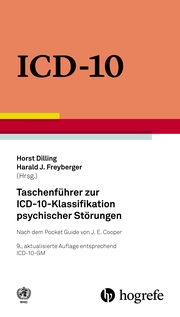Key Ideas in Psychology (E-Book, EPUB)
Key Ideas in Psychology
eBook
Bibliographische Informationen
Format: Digitale Rechteverwaltung: Adobe DRM
Beschreibung
`This would be an excellent companion to an A-level or first year degree course or indeed anyone with an interest in psychology. The book aims to `tell people what psychology is about' and it does this in an extremely well structured and accessible fashion. It gives a good introduction to severaldifferent elements of the study of psychology and provides further reading for those wishing to gain a deeper understanding. As each chapter can be read alone it is also a useful reference tool to provide explanations of subjects and quick overviews of areas. Each chapter is written in a balanced way and allows the reader room for reflection.'-Journal of Critical Psychology, Counselling& Psychotherapy`It is truly very difficult to describe books such as this, which through the use of clear and simple language achieve accessibility for those interested as long as they take account of the scientific style of the psychological terminology so well defined throughout its chapters As if this were not enough, at the end of every chapter the author presents us with a selection of fundamental books so that if we wish we can further our knowledge of each subject.'- European Journal of Psychiatry`This is an excellent book, and for anyone who is not a psychologist but would like to understand the basic concepts within its different fields, is difficult to better, given its size. The text is lucid, readable and provides both a good selection of references and some judiciously chosen further reading. The author consistently introduces the major concepts of each subject, and then goes onto discuss the recent developments in each field. The chapter on Biopsychology not only discusses the biological basis of nerve function but discusses sleep and the mind-body relationship in a cogent and helpful way to those needing a quick basis for further reading. The lack of illustrations anywhere in the text coming in the chapter on statistics. Having said that, the text itself reads in such a way - even the statistics chapter - that these are almost rendered unnecessary. A book like this is difficult to write, because no matter why is selected, someone will complain that there are gaps, but these are understandable. It would have been extremely helpful to have health psychology treated in the same way that the author treats other subjects, but given the plethora of texts on health psychology available these days, it's hardly surprising the author didn't cover this topic, and this is rather a grudging complaint. The publisher is providing a solid and growing range of titles, and the present author himself has authored a number of other texts which are of value to more specialised audiences. This book is ideal for professionals with little or no grounding in psychology, or those new to the subject, who need to know something about the field and its concepts. Excellent as an A Level background text or for other readers wanting to update their knowledge, this book should find a wide readership.'- Journal of the Royal Society for the Promotion of HealthThis accessible book has a simple aim - to tell people what psychology is about. It presents a review of the key areas of the subject as it is traditionally taught, and provides the reader with an introduction to important concepts and findings within each of these. Armed with the information in this book, the reader should be able at least to make sense of most psychological topics. At the end of each chapter is a set of suggested further readings which will enable a more detailed exploration of the particular topic under discussion to be made.The book will be of interest to two groups of readers. The first comprises people who are new to the subject and simply want to know what psychology is. The second consists of those who want a general guide to an area but who wish to make up their minds on the details for themselves. Hence the basic information and arguments are explained, but details are not elaborated.
Autorenportrait
Inhalt
E-Book Informationen
„eBooks“ sind digitale Bücher. Um eBooks lesen zu können, wird entweder eine spezielle Software für Computer, Tablets und Smartphones oder ein eBook-Reader benötigt. Da es eBooks in unterschieldichen Formaten gibt, gilt es, folgendes zu beachten.
Von uns werden digitale Bücher in drei Formaten ausgeliefert. Die Formate sind EPUB mit DRM (Digital Rights Management), EPUB ohne DRM und PDF. Bei den Formaten PDF und EPUB ohne DRM müssen Sie lediglich prüfen, ob Ihr eBook-Reader kompatibel ist. Wenn ein Format mit DRM genutzt wird, besteht zusätzlich die Notwendigkeit, dass Sie einen kostenlosen Adobe® Digital Editions Account besitzen. Wenn Sie ein eBook, das Adobe® Digital Editions benötigt, herunterladen, erhalten Sie eine ASCM-Datei, die zu Digital Editions hinzugefügt und mit Ihrem Account verknüpft werden muss. Einige eBook-Reader (zum Beispiel PocketBook Touch) unterstützen auch das direkte Eingeben der Login-Daten des Adobe Accounts – somit können diese ASCM-Dateien direkt auf das betreffende Gerät kopiert werden.
Da eBooks nur für eine begrenzte Zeit – in der Regel 6 Monate – herunterladbar sind, sollten Sie stets eine Sicherheitskopie auf einem Dauerspeicher (Festplatte, USB-Stick oder CD) anlegen. Außerdem ist die Anzahl der Downloads auf maximal 5 begrenzt.
Andere Artikel von "Stuart-Hamilton, Ian"
Herunterladen

Herunterladen

Herunterladen

Weitere Artikel aus der Kategorie "Psychologie"
Lieferbar innerhalb 24 Stunden

Lieferbar innerhalb 24 Stunden

Lieferbar innerhalb 24 Stunden

Neuerscheinung










